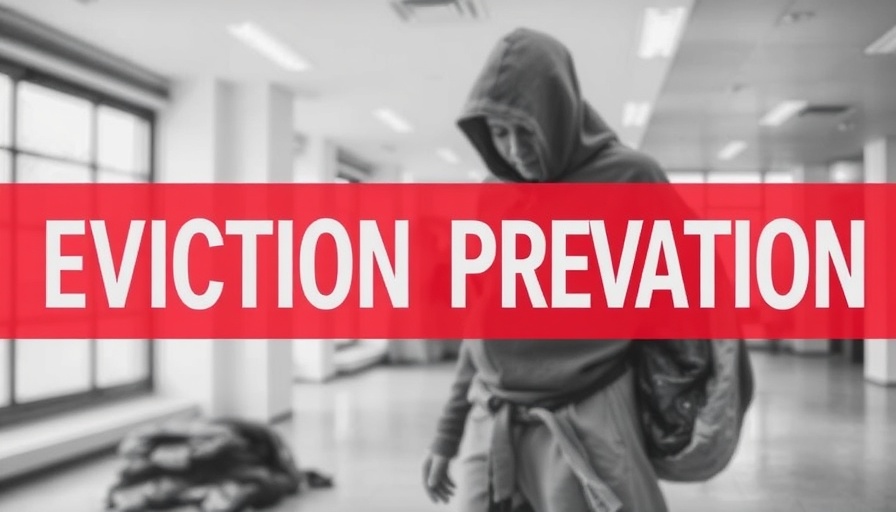
San Francisco's Eviction Crisis: A Closer Look
San Francisco is currently grappling with an alarming surge in eviction filings, revealing the severe economic strain many residents are experiencing. According to data shared by legal aid organizations, filings have spiked significantly, with February witnessing a 57% increase from the previous year. This troubling trend points toward a larger systemic issue affecting the city's most vulnerable populations.
The Impact of Reduced Legal Aid on Evictions
The situation is expected to worsen due to proposed cuts to legal aid services that provide crucial representation for low-income residents facing eviction. Amid the city’s budgetary constraints, the Mayor’s Office has suggested eliminating $4.2 million allocated towards general civil legal services, which are essential for preventing homelessness. This decision underscores a critical mismatch between the city’s financial decisions and the dire realities faced by many.
Understanding the Tenant Right to Counsel
Established in 2018, the Tenant Right to Counsel program aims to ensure that all residents have access to legal representation when facing eviction. However, the overwhelming number of cases—over 3,700 projected for the year—poses a significant challenge. Eviction defense lawyer Ora Prochovnick emphasizes that most of these cases stem from non-payment issues, with tenants often in significant arrears due to a combination of economic hardship exacerbated by the COVID-19 pandemic and skyrocketing rents.
Connections Between Legal Aid and Homelessness Prevention
Experts like Laura Chiera from Legal Assistance to the Elderly point out that eliminating these legal aid services could send vulnerable individuals two steps away from homelessness. Programs that help clients navigate benefits, reduce wage garnishments, and handle complex financial situations directly correlate with a household's ability to maintain stable housing. Without sufficient legal support, those already on the brink could face devastating consequences.
Local Government’s Role Amid Financial Crisis
As the city grapples with a staggering $1 billion budget deficit, difficult decisions must be made regarding funding priorities. While these cuts are aimed at rebalancing finances, civil rights advocates argue that the effects of such cuts disproportionately affect low-income communities, particularly those already at risk of displacement. The city’s leadership, thus, is at a crossroads—balancing fiscal responsibility against the imperative to safeguard its most vulnerable residents.
Elevating the Discussion on Eviction Prevention
This scenario highlights a broader conversation about housing security and the systemic issues contributing to housing instability. It raises questions about how best to provide support to those who are struggling financially. In cities like San Francisco, where the cost of living is exorbitant, a collaborative approach involving community organizations, legal aid, and governmental support is essential for achieving meaningful change.
Future Implications and Community Responses
The future of eviction rates in San Francisco may depend on the community’s response to these funding cuts. Grassroots movements and advocacy groups are urging citizens to rally around the cause of defending legal aid. They emphasize that protecting access to legal resources is not just about preventing evictions; it is about preserving the fabric of the community and ensuring that families are not uprooted because of financial hardship.
As the discussions unfold, residents are encouraged to stay informed and engaged. Following local news updates, participating in community forums, and advocating for essential services can make a significant difference in ensuring that vulnerable populations receive the support they desperately need.
Ultimately, San Francisco's current eviction crisis serves as a stark reminder of the interconnectedness of housing stability, economic health, and community well-being. The choices made today will shape the city's landscape in years to come, making it imperative for all stakeholders to engage thoughtfully in this critical issue.
 Add Row
Add Row  Add
Add 




 Add Row
Add Row  Add
Add 

Write A Comment